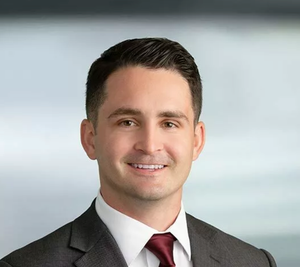Background of the Dispute
In this case (Lario Oil & Gas Co. v. Black Hawk Energy Services, Ltd.), Lario Oil & Gas Company (Lario) and Black Hawk Energy Services, Ltd. (Black Hawk) entered into a Master Service Agreement (MSA). Thereafter, Black Hawk began a workover job on the Peggy 101 Well to replace an electric submersible pump (ESP), during which they encountered issues with well pressure and corroded tubing. The pipe separated during the job, causing the ESP and pipe to fall into the well, and leading to an extensive fishing operation to recover the lost equipment.
Claims and Counterclaims
Lario refused to pay Black Hawk’s invoices, arguing that Black Hawk caused the incident. Lario sued Black Hawk for breach of contract and negligence, alleging that Black Hawk’s mishandling caused the pipe separation. Black Hawk counterclaimed for unpaid invoices, arguing that Lario had refused to pay for the work performed. After a trial, the jury found that both Lario and Black Hawk breached the MSA and awarded Black Hawk over $825,000 in damages and Lario $0. Lario appealed.
Lario’s Appeal: Legal Sufficiency Challenge
In its legal sufficiency challenge, Lario argued that the jury’s award of $0 damages was arbitrary, given the jury’s finding that Black Hawk breached the MSA and proximately caused damages. The court rejected the argument. Notably, the instructions submitted to the jury were broad and did not clearly delineate which specific breaches or damages should be tied together. Because the questions were phrased broadly, the jury could have reasonably concluded that Black Hawk breached the MSA in some way, but that the breach did not result in the damages claimed by Lario.
Jury Instructions and Procedural Missteps
Moreover, because the jury was not specifically asked to calculate damages for each particular breach, it was free to decide that $0 was appropriate, especially since Lario did not pay Black Hawk and failed to prove that other vendors were paid for the related work. Importantly, Lario also failed to object to the potentially conflicting jury answers before the jury was discharged, which is a procedural requirement to preserve the issue for appeal. By failing to act during the trial, Lario lost the opportunity to have the court clarify or correct any inconsistencies in the jury’s findings through additional instructions or further deliberations.
Factual Sufficiency Challenge and Evidence Review
With regard to Lario’s factual sufficiency challenge, Lario argued that the jury's award of $0 in damages was arbitrary and against the great weight of the evidence. But the court explained that to overturn the jury’s finding, Lario had to show that the verdict was so contrary to the overwhelming weight of the evidence that it is clearly wrong and unjust. The court upheld the jury’s decision, noting that the jury is the sole judge of witness credibility and the evidence, including testimony regarding corroded pipes and the Black Hawk crew’s positive drug tests, was sufficient for the jury to find no causation between Black Hawk’s breach and Lario’s claimed damages.
Damages Instruction and Evidentiary Gaps
Importantly, the court also emphasized that the jury was specifically instructed to award damages based only on the reasonable and necessary cost to finish the uncompleted work and that Lario failed to object to the phrasing of this instruction. Additionally, Lario did not provide evidence proving which specific damages were caused by Black Hawk’s breach rather than other factors like negligence, which the jury had rejected.












